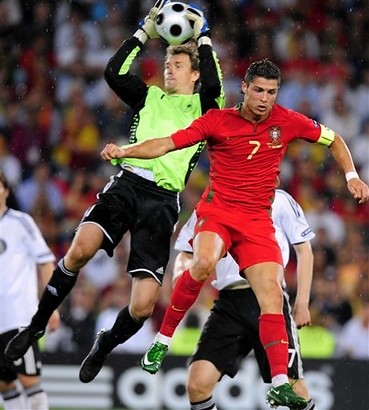For those following the on-going saga regarding
the legality of the Bowl Championship Series under federal antitrust law, there have been several developments this week that may be of interest.
First, the
Honolulu Star-Advertiser reported on Tuesday that the State of Hawaii is considering whether to join the forthcoming antitrust suit that Utah Attorney General Mark
Shurtleff intends to file against the
BCS. Hawaii AG David Louie reportedly discussed the issue at length with
Shurtleff during a recent meeting of state attorneys general, and his office is working on an agreement with Utah to share related materials. Hawaii would be a logical state to join in such a suit, given that its flagship university is in a non-
BCS conference, and received a disproportionately small share of revenue for its 2008 Sugar Bowl appearance.
Second, Christine
Varney, an Assistant Attorney General in the Antitrust Division at the U.S. Department of Justice,
sent a letter on Tuesday to NCAA President Mark
Emmert, inquiring as to the
NCAA's position on the
BCS.
Varney's letter began by stating that "serious questions continue to arise suggesting that the current [
BCS] system may not be conducted consistent with the competition principles expressed in federal antitrust laws." The letter then went on to ask the NCAA to explain why it does not offer a playoff for the Football Bowl Subdivision, and whether the NCAA believes the
BCS currently serves the best interests of "fans, colleges, universities, and players." The letter closes by stating that the
NCAA's views on these issues will help the Justice Department determine how to proceed with respect to the
BCS, a clear signal that the federal government continues to investigate the legality of the system.
It will be interesting to see how the NCAA responds to the Justice Department's letter. The six
BCS conferences possess an inordinate amount of power within the NCAA, and will presumably pressure the organization to remain agnostic regarding a playoff in its response. However, the NCAA membership at large would stand to benefit significantly if a playoff were implemented in the Football Bowl Subdivision, given that the NCAA would undoubtedly retain a share of the revenues it generates (as it does for the NCAA Division I men's basketball tournament). In the unlikely event the NCAA came out in favor of a playoff, pinning the blame for the lack of a playoff on the obstinate leadership of the six power conferences, it could inflict a significant blow to the
BCS's chances of surviving this latest round of political pressure.
Finally,
CNN is reporting that Utah Senator Orrin Hatch "demanded" the Justice Department further consider a potential lawsuit against the
BCS during Attorney General Eric Holder's appearance before the Senate Judiciary Committee on Wednesday.
AG Holder reported stated that he did "not disagree" with Senator
Hatch's characterization of the
BCS as a "mess" that provides distinct advantages to certain "privileged conferences."
All in all, one has to wonder how much longer the
BCS leadership will continue to defend the system in the face of increasing political pressure, especially given the fact that the six
BCS conferences would stand to earn hundreds of millions of dollars more per year under a playoff system.
Update: Mike
McCann is interviewed today by David
Moltz of
Inside Higher Ed on
the Justice Department's letter to the NCAA.
Update #2: The
PlayoffPac blog discusses the relevance of the
NCAA's views on the playoff matter, noting that NCAA bylaws prohibit any outside entity from establishing its own championship tournament.














